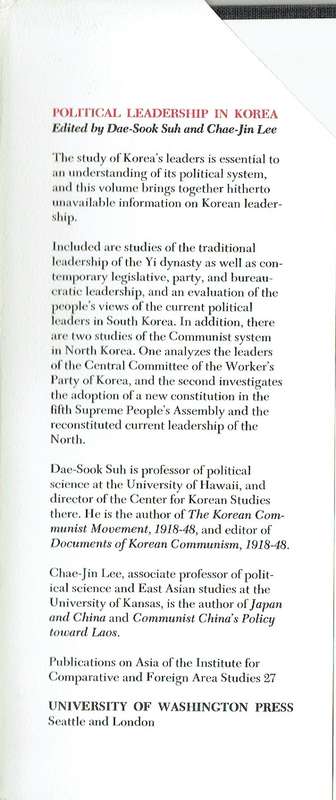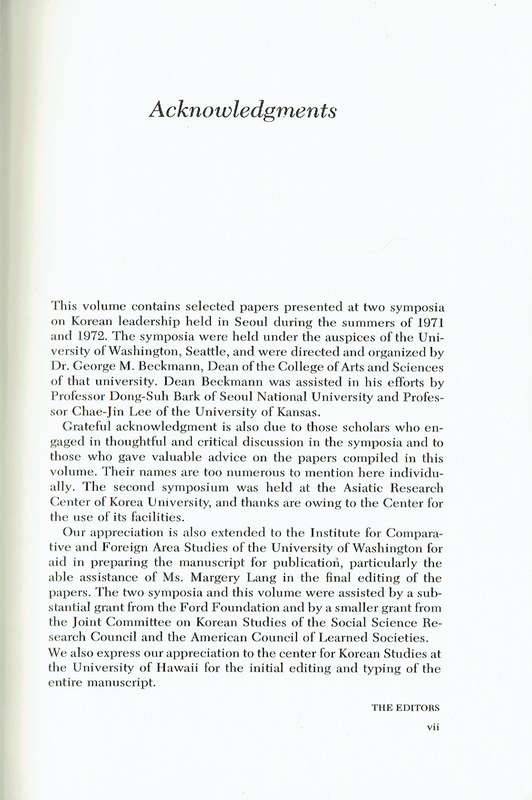









Political Leadership in Korea
Check my rate
| Main centres: | 1-3 business days |
| Regional areas: | 3-4 business days |
| Remote areas: | 3-5 business days |










| Main centres: | 1-3 business days |
| Regional areas: | 3-4 business days |
| Remote areas: | 3-5 business days |
Dae-Sook Suh and Chae-Jin Lee (editors), Political Leadership in Korea. Seattle and London: University of Washington Press, 1976.
Hardcover, original bookcloth, dustwrapper, 272 pages.
Dustwrapper a little frayed and slightly soiled; otherwise the book is in very good, clean condition.
The need to study political leadership can hardly be overstated, particularly in a country such as Korea, whose political order has been transformed from stagnant monarchy to subjugated colony and finally divided nation without the emergence of a national leader or group of leaders, charismatic or otherwise, who could command the respect of the entire people.
The study of Korea's leaders is essential to an understanding of its political system, and this volume brings together hitherto unavailable information on Korean leadership.
Included are studies of the traditional leadership of the Yi dynasty as well as contemporary legislative, party, and bureaucratic leadership, and an evaluation of the people's views of the current political leaders in South Korea. In addition, there are two studies of the Communist system in North Korea. One analyzes the leaders of the Central Committee of the Worker's Party of Korea, and the second investigates the adoption of a new constitution in the fifth Supreme People's Assembly and the reconstituted current leadership of the North.
Dae-Sook Suh is professor of political science at the University of Hawaii, and director of the Center for Korean Studies there. He is the author of The Korean Communist Movement, 1918-48, and editor of Documents of Korean Communism, 1918-48.
Chae-Jin Lee, associate professor of political science and East Asian studies at the University of Kansas, is the author of Japan and China and Communist China's Policy toward Laos.
Contents
1. Political Leadership in the Yi Dynasty
2. Legislative Leadership and Democratic Development
3. Party Bureaucrats and Party Development
4. Bureaucratic Elite and Development Orientations
5. Popular Perceptions of Political Leadership
6. Communist Party Leadership
7. The 1972 Constitution and Top Communist Leaders
8. Toward a Theory of Korean Political Leadership Behavior
Appendix: Toward a Political Leadership Profile for a Changing Society